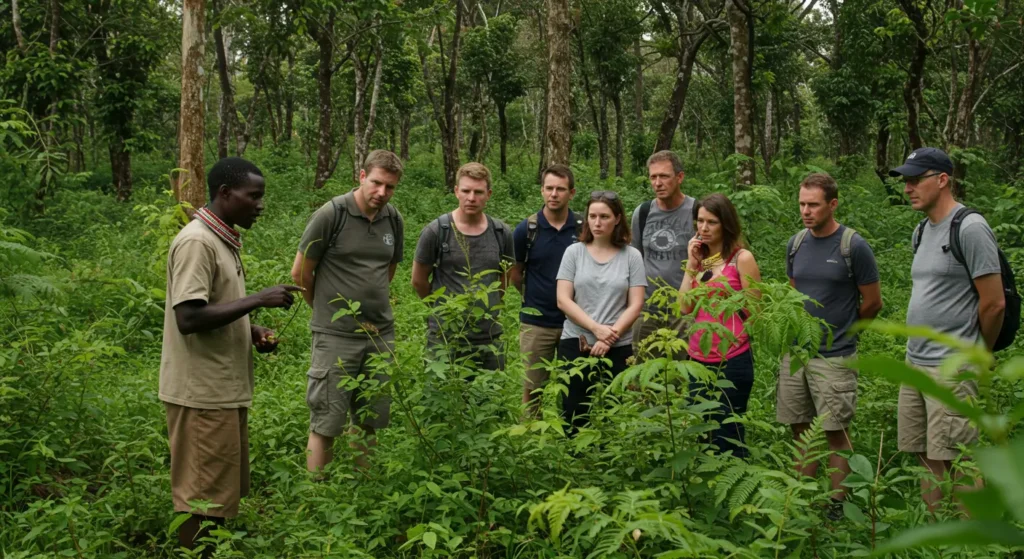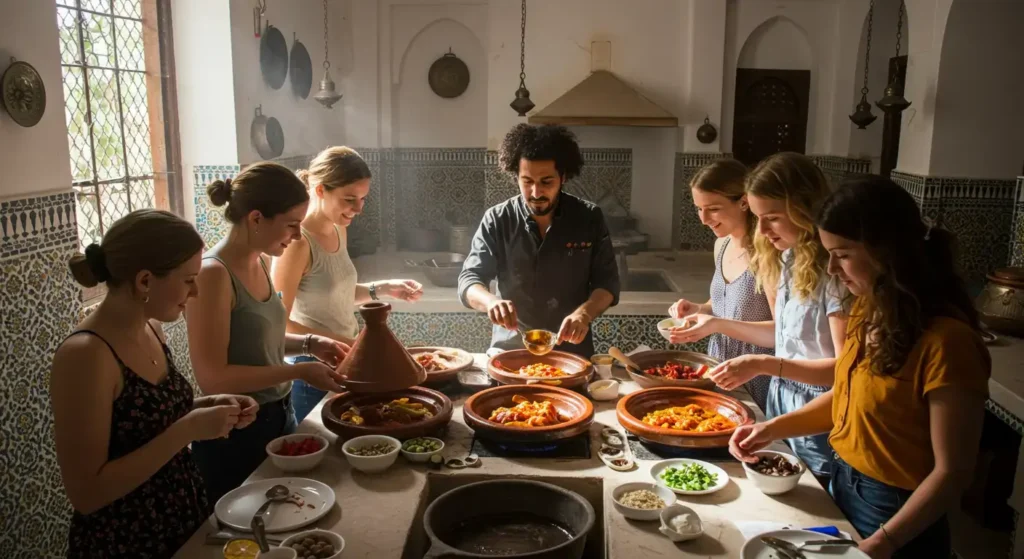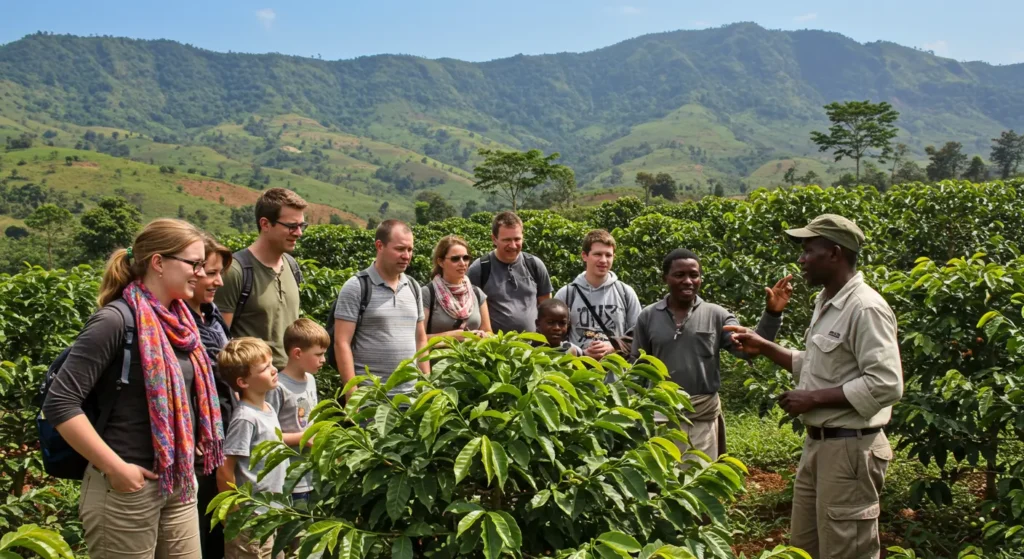Wellness is no longer confined to luxury spas in Europe or yoga retreats in Bali. Travelers seeking authentic healing are turning to Africa, where indigenous knowledge meets modern curiosity. In the heart of East Africa, herbal tourism in Kenya is emerging as a new frontier inviting visitors to explore healing plants, join herbal retreats and reconnect with nature through centuries old traditions
From the lush forests of Kakamega to the sacred Kaya forests at the coast, herbal tourism is redefining what it means to travel for health, culture and sustainability.
The Rise of Herbal Tourism in Kenya
For generations, herbal medicine has been the backbone of healthcare in Kenyan communities. Remedies made from roots, barks, leaves, and seeds are used to treat everything from stomach ailments to stress. In a global era where wellness, sustainability, and authenticity drive travel choices, Kenya is positioning itself as a premier destination for herbal tourism.
International tourists are increasingly interested in plant-based healing and holistic retreats. According to the World Travel & Tourism Council, wellness tourism is growing twice as fast as traditional tourism and herbal tourism in Kenya taps directly into this demand.

Sacred Forests and Healing Trails
Kenya’s forests are living pharmacies. Travelers visiting Kakamega Forest can take guided herbal walks where local healers point out medicinal plants, explaining their traditional uses. For example, the bark of Prunus africana is valued for prostate health, while Warburgia ugandensis is a natural antibiotic.
At the Coast, the Kaya forests UNESCO World Heritage Sites are not just cultural sanctuaries but also botanical libraries. Community guides lead visitors through centuries-old rituals and herbal knowledge preserved by the Mijikenda people. These immersive experiences blend nature, culture and health into an unforgettable journey.
Herbal Medicine Retreats and Eco-Lodges
A growing number of eco-lodges and wellness retreats now offer packages centered on herbal healing. Tourists can spend a week in serene settings learning about herbal remedies, participating in workshops on plant identification and even joining traditional healing ceremonies.
Places like Mount Kenya foothills and Rift Valley eco-lodges are marketing themselves as wellness escapes. Travelers can combine nature walks with herbal baths, detox diets, and meditation—all sourced from local plants and traditions.
This is not just tourism; it’s healing with roots.
The Economic Impact on Communities
Herbal tourism is more than a trend it’s an economic lifeline. Communities that once relied solely on subsistence farming are diversifying their income by offering herbal tours, selling herbal teas, oils and soaps and hosting tourists in homestays.
In Kisii, local women’s groups are turning herbal knowledge into income by creating visitor experiences that showcase how plants are harvested, processed and preserved. Tourists not only learn but also buy herbal products, creating a sustainable market.
This empowers rural communities, preserves indigenous knowledge, and strengthens cultural identity.

Blending Science and Tradition
Kenya is also seeing collaborations between traditional healers and researchers. Universities and botanical institutes are documenting herbal plants and validating their efficacy. For tourists, this adds credibility and depth. Visiting a community healer is no longer seen as mystical it’s understood as a living science deeply rooted in biodiversity.
By combining tradition with research, herbal tourism in Kenya offers visitors a balanced experience—one that is authentic, safe, and enriching.
Herbal Products as Travel Souvenirs
Herbal tourism goes beyond experiences it’s also about tangible products. Travelers often return home with herbal teas, essential oils, balms, and soaps.
High-value exports such as aloe-based products, moringa, and neem oils are in demand globally. Tourists become brand ambassadors, creating long-term demand that links tourism with agribusiness.
Why Herbal Tourism Appeals to High-Spending Travelers
From an economic perspective, herbal tourism attracts high-CPC value audiences. Affluent travelers seeking wellness and sustainability are willing to pay premium prices for eco-lodge stays, herbal treatments, and authentic cultural encounters.
These tourists are drawn by:
- Wellness retreats → High-value packages including herbal therapies and yoga.
- Eco-lodges → Sustainable luxury accommodations.
- Cultural immersion → Paying for authentic tours and workshops.
- Organic products → Purchasing herbal teas, oils, and remedies as souvenirs.
This positions Kenya as a competitive player in the lucrative global wellness tourism market.
Challenges and Opportunities
While herbal tourism in Kenya is promising, it faces challenges:
- Regulation of herbal medicine → Tourists need assurance of safety and authenticity.
- Overharvesting → Popular plants risk extinction if not sustainably managed.
- Marketing gaps → Many herbal tourism sites remain hidden and under-promoted.
But opportunities are vast. By creating herbal tourism circuits (like tea and coffee circuits), Kenya can package experiences that link herbal walks, healing retreats, and cultural showcases into a cohesive offering.

The Future of Herbal Tourism in Kenya
As travelers seek wellness, sustainability, and authenticity, herbal tourism in Kenya has the potential to grow into a mainstream attraction. It empowers communities, preserves indigenous knowledge, and positions Kenya as more than just a safari destination.
With the right investment in eco-lodges, wellness retreats, and marketing, herbal tourism could become one of Kenya’s most unique and profitable tourism niches.
For travelers, the journey is more than sightseeing—it’s a return to nature, a rediscovery of ancient healing, and an investment in holistic living.
Herbal tourism in Kenya is where tradition meets travel. From guided forest walks to eco-lodge retreats, it offers a journey into healing plants, community culture, and natural remedies. It’s not just about visiting Kenya; it’s about experiencing wellness, heritage, and sustainability in one unforgettable package.
Kenya’s herbal tourism story is still being written but for travelers seeking deeper meaning, it’s already one of Africa’s most compelling journeys





